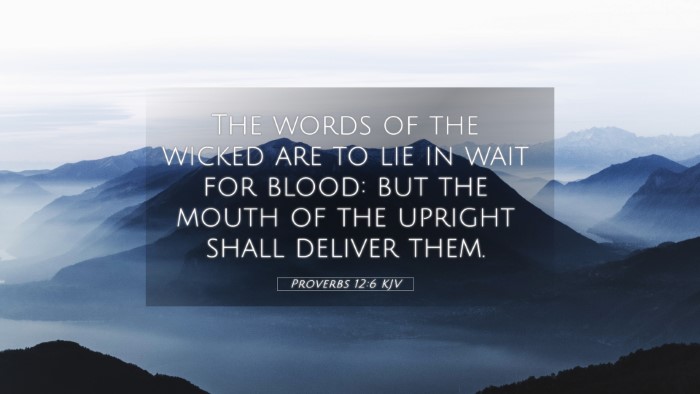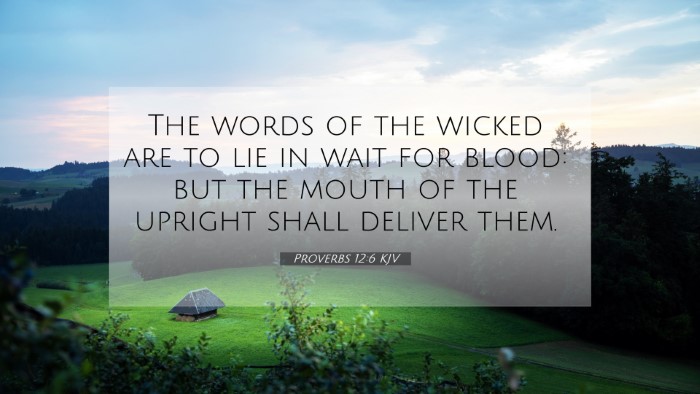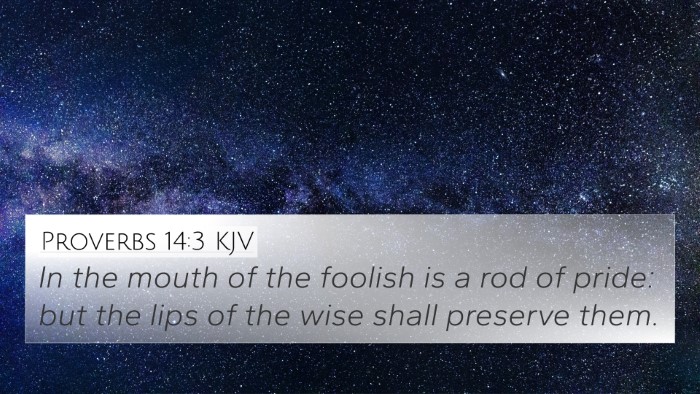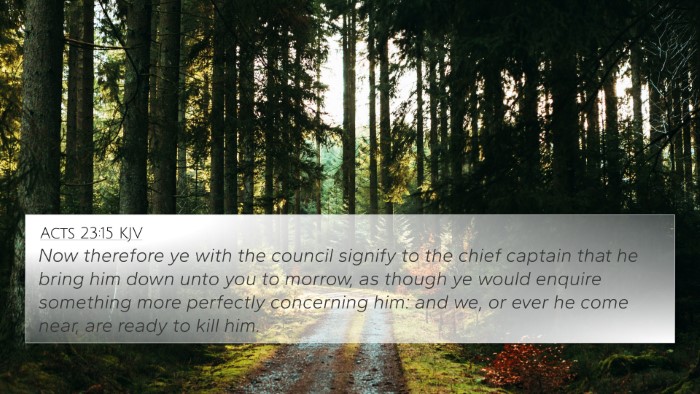Understanding Proverbs 12:6
Proverbs 12:6 states: "The words of the wicked lie in wait for blood, but the mouth of the upright delivers them." This verse embodies a contrast between the destructive nature of wickedness and the life-giving power of righteousness. Below, we examine the meaning, connections, and implications surrounding this verse, drawing on insights from reputable public domain commentaries.
Overview of Proverbs 12:6
In this passage, the author highlights the idea that evil intentions can lead to harm and destruction, whilst righteous speech — characterized by truth and integrity — can provide protection and salvation. This duality serves as a cautionary reminder of the profound impact our words can have.
Commentary Insights
-
Matthew Henry: Henry emphasizes that the words of the wicked are deceitful and dangerous, plotting harm against others. In contrast, the righteous speak words that foster saving grace and deliverance, echoing the power of faith-filled words.
-
Albert Barnes: Barnes illustrates the imagery of words lying in wait, akin to a hunter. The wicked are portrayed as waiting to ensnare their prey through falsehoods. Conversely, the upright use their speech to guide others towards safety and truth.
-
Adam Clarke: Clarke sees this verse as a commentary on moral conduct and the weight of speech. He connects the moral responsibilities of individuals with the outcomes of their words, reinforcing the principle that righteousness leads to protection and evil leads to peril.
Cross-References to Proverbs 12:6
Understanding Proverbs 12:6 is enriched through cross-referencing with other scriptural texts. Below are notable connections:
- James 3:6 - "And the tongue is a fire, a world of iniquity..." This verse highlights the ability of words to cause great harm.
- Psalms 34:13 - "Keep your tongue from evil and your lips from speaking deceit." This aligns with the theme of upright speech delivering safety.
- Proverbs 18:21 - "Death and life are in the power of the tongue." Both good and evil can flow from our words, echoing the message of Proverbs 12:6.
- Matthew 12:36-37 - "But I tell you that everyone will have to give account on the day of judgment for every empty word they have spoken." This emphasizes the accountability of speech.
- Proverbs 15:4 - "The soothing tongue is a tree of life, but a perverse tongue crushes the spirit." This reflects the life-giving nature of righteous words.
- Psalms 140:3 - "They make their tongues sharp as a serpent’s; the venom of asps is under their lips." This illustrates the danger of wicked speech.
- Isaiah 54:17 - "No weapon formed against you shall prosper..." This promises protection for the upright.
Thematic Connections
This verse serves as a bridge to several important Biblical themes, including:
- The Power of Speech - How our words can create, destroy, harm, or heal.
- Righteousness vs. Wickedness - The contrasting paths and their outcomes.
- Divine Protection - The assurance that uprightness leads to deliverance from harm.
Practical Application
Understanding the implications of Proverbs 12:6 urges believers to:
- Be mindful of their speech, recognizing its potential consequences.
- Seek righteousness in communication, using words to uplift rather than tear down.
- Engage in Bible study methods that cross-reference related verses to deepen their understanding.
Conclusion
Proverbs 12:6 presents a cautionary tale about the effects of words and the moral dichotomy between the wicked and the upright. By engaging in cross-referencing Biblical texts and exploring thematic Bible verse connections, one can gain a richer, more profound understanding of the scriptural truths that guide our lives.













